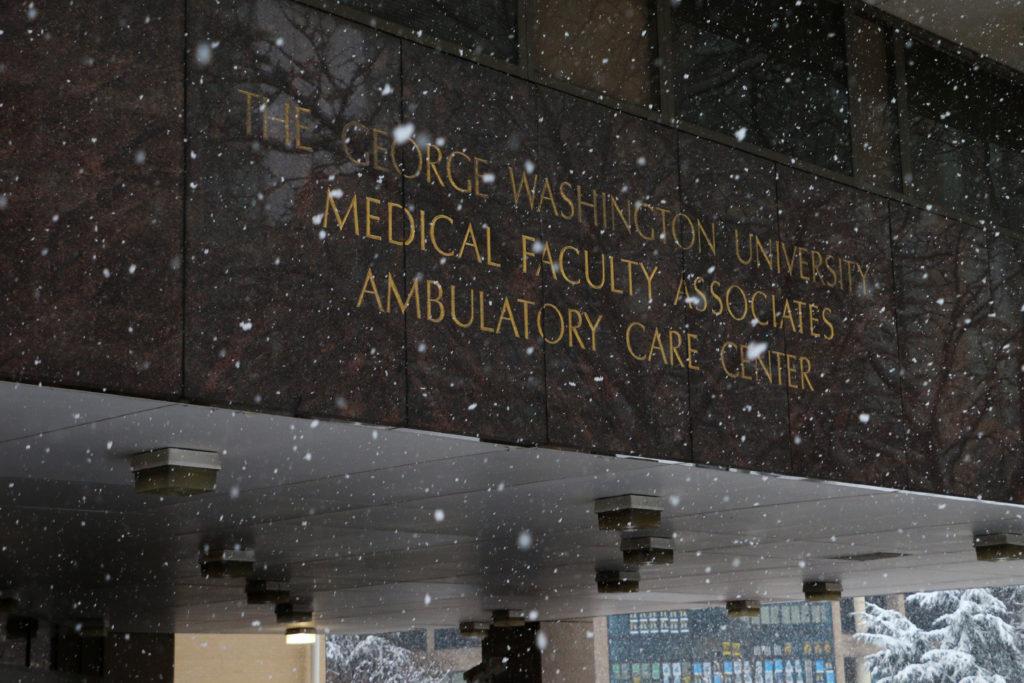Doctors said a move that gave GW more power over the Medical Faculty Associates last month will help stabilize the group’s finances and strengthen the organization’s purchasing and accounting power.
Doctors within the MFA said the new structure could also mean better management practices and clearer administrative roles for top stakeholders, like the CEO and board members, which medical faculty said have lacked transparency and efficiency when major changes were made in the past.
Officials announced last month that the relationship between GW and the MFA had been restructured, granting the University greater decision-making responsibilities while maintaining the MFA’s independence. The changes – effective Dec. 14 – include new responsibilities for the University, like the right to approve the MFA’s CEO, annual budget and “significant affiliations and business relationships.”
Joseph Afram, the director of the GW Weight Loss and Surgery Center, said the change is a “positive move” because it makes the MFA a more effective medical entity with more financial power.
“The association with the University gives it more prestige,” Afram said. “The University has a big name, very influential. Definitely, it will stabilize the financial situation of the MFA.”
Afram said he backs the decision to give the University more influence in deciding who is selected as CEO and the appointment and approval of board members. He said that while having the University oversee the MFA’s finances may be more “restrictive,” the move could mean better management overall.
“This power will be in both entities,” he said. “It will not be like one entity is running the other in any way, it will be a positive joining of power.”
Adam Friedman, a professor of dermatology, said the MFA will now have the purchasing power of an “institutional powerhouse,” with GW exercising more administrative control instead of just acting as an outpatient facility.
“It gives a lot of flexibility and opportunities to grow, and to more importantly improve where there are deficits currently,” Friedman said. “I was ecstatic to hear about this. I think it’s a good thing.”
Friedman said the MFA had issues with leadership, like a lack of transparency, in the past, and the change will bring clarity when major decisions are made or when “things go right or wrong.”
“That’s the sense I’m getting, that it will offer more opportunities to make the important changes to allow the MFA to grow and build and improve upon itself,” he said.
Friedman said further integration between the MFA and the University may be in the works, and he said he hopes faculty become employees of the University instead of the MFA because it would give them greater security and better perks.
“Being a true employee of an institution would make you feel more part of it,” he said.
University spokeswoman Lindsay Hamilton said the new structure will stabilize the MFA by consolidating it with the University’s stronger balance sheet, helping to ensure the MFA will have more financial assets than liabilities.
“It also creates greater strategic alignment between the University and the MFA, allowing the entities to speak with one voice as they work together to grow and strengthen the University’s medical enterprise,” Hamilton said in an email.
Hamilton said discussions about restructuring the relationship occurred for several months before the partnership was restructured.
She declined to say who initiated the changes. She also declined to say how the University would evaluate the success of the restructuring.
University President Thomas LeBlanc said formal discussions about the new relationship began on Aug. 1. Improving GW’s medical organizations was one of LeBlanc’s five goals upon coming to GW and is now listed as an accomplishment on a website that tracks the progress of LeBlanc’s goals.
MFA faculty said in May that communication between the University’s medical groups needed to be improved to ensure successful collaboration and the completion of long-term research projects.
“We have a structure where it’s better aligned than it has been in 20 years, and it’s something that will help us move forward with the MFA and University on the same page,” LeBlanc said at the Faculty Senate meeting on Friday.





